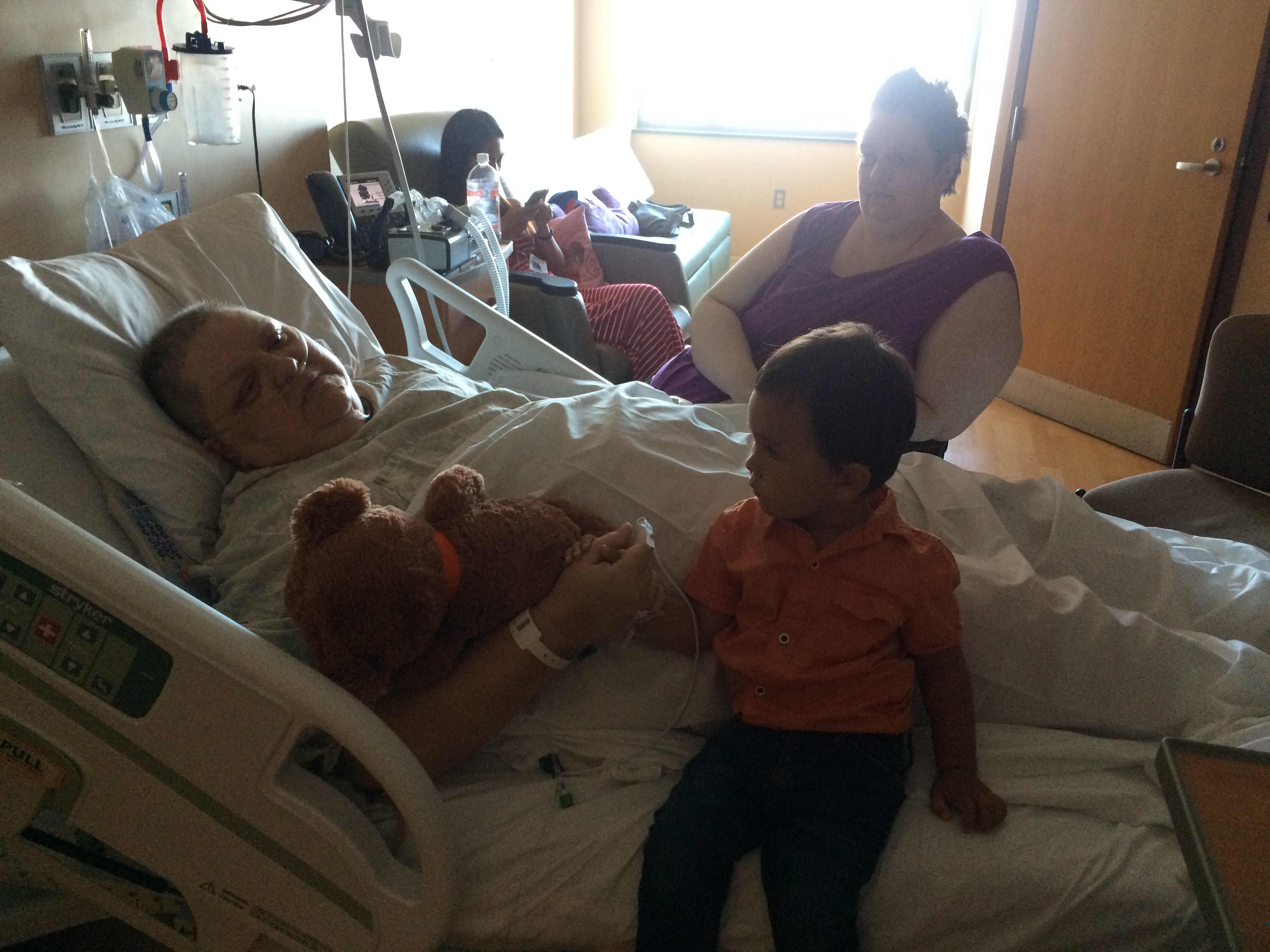
From Cancer.gov (the National Cancer Institute at the United States National Institutes of Health):
“Cannabis has been shown to kill cancer cells in the laboratory”
See: Cannabis and Cannabinoids (PDQ®)–Patient Version
Preclinical studies of cannabinoids have investigated the following:
Antitumor activity
- Studies in mice and rats have shown that cannabinoids may inhibit tumor growth by causing cell death, blocking cell growth, and blocking the development of blood vessels needed by tumors to grow. Laboratory and animal studies have shown that cannabinoids may be able to kill cancer cells while protecting normal cells.
- A study in mice showed that cannabinoids may protect against inflammation of the colon and may have potential in reducing the risk of colon cancer, and possibly in its treatment.
- A laboratory study of delta-9-THC in hepatocellular carcinoma (liver cancer) cells showed that it damaged or killed the cancer cells. The same study of delta-9-THC in mouse models of liver cancer showed that it had antitumoreffects. Delta-9-THC has been shown to cause these effects by acting on molecules that may also be found in non-small cell lung cancer cells and breast cancer cells.
- A laboratory study of cannabidiol (CBD) in estrogen receptor positive and estrogen receptor negative breast cancer cells showed that it caused cancer cell death while having little effect on normal breast cells. Studies in mouse models of metastatic breast cancer showed that cannabinoids may lessen the growth, number, and spread of tumors.
- A laboratory study of cannabidiol (CBD) in human glioma cells showed that when given along with chemotherapy, CBD may make chemotherapy more effective and increase cancer cell death without harming normal cells. Studies in mouse models of cancer showed that CBD together with delta-9-THC may make chemotherapy such as temozolomide more effective.
Read the scientific study from the Journal of Clinical Investigation for more.
According to my sources: a 60 gram treatment of CBD cannabis oil (taken on average over 90 days) is recommended for those suffering serious disease such as cancer. Each tube is typically 10 grams, and can be purchased from medical dispensaries. Cost is usually just $600-1200 total.
Ketosis and Cancer
Dr. D’Agostino is an Assistant Professor at the University of South Florida College Of Medicine, Molecular Pharmacology & Physiology where he develops and tests metabolic therapies, including alternative energy substrates and ketogenic agents for neurological disorders, cancer and wound healing. While studying the effects of gasses on the brains of Navy Seal divers, he developed an approach for metabolically starving cancer cells through diet and compressed oxygen, replacing chemotherapy, surgery, or radiation.
Listen to the Tim Ferriss podcast: Dom D’Agostino on Fasting, Ketosis, and the End of Cancer
One of the things about being in ketosis in a safe manner is drinking lots of water. Side effect of that is a loss of electrolytes. You need to restock on sodium, potassium and magnesium, or you’ll get muscle cramps and get constipated.
Cancer: A Metabolic Disease with a Metabolic Solution
Dr. Thomas Seyfried – Boston College
Emerging evidence indicates that cancer is primarily a metabolic disease involving disturbances in energy production through respiration and fermentation. Cancer is suppressed following transfer of the nucleus from the tumor cell to cytoplasm of normal cells containing normal mitochondria. These findings indicate that nuclear genetic abnormalities cannot be responsible for cancer despite commonly held beliefs in the cancer field. The genomic instability observed in tumor cells and all other recognized hallmarks of cancer are considered downstream epiphenomena of the initial disturbance of cellular energy metabolism. The disturbances in tumor cell energy metabolism can be linked to abnormalities in the structure and function of the mitochondria. Cancer growth and progression can be managed following a whole-body transition from fermentable metabolites, primarily glucose and glutamine, to respiratory metabolites, primarily ketone bodies. This transition will reduce tumor vascularity and inflammation while enhancing tumor cell death. A novel “press-pulse” therapeutic strategy is in development for the non-toxic metabolic management of cancer. Malignant brain cancer in preclinical models and humans will be used to illustrate general concepts. As each individual is a unique metabolic entity, personalization of metabolic therapy as a broadbased cancer treatment strategy will require fine-tuning to match the therapy to an individual’s unique physiology.
Thomas N. Seyfried received his Ph.D. in Genetics and Biochemistry from the University of Illinois, Urbana, in 1976. He did his undergraduate work at the University of New England, where he recently received the distinguished Alumni Achievement Award. He also holds a Master’s degree in Genetics from Illinois State University. Thomas Seyfried served with distinction in the United States Army’s First Cavalry Division during the Vietnam War and received numerous medals and commendations. He was a Postdoctoral Fellow in the Department of Neurology at the Yale University School of Medicine and then served on the faculty as an Assistant Professor in Neurology. Other awards and honors have come from such diverse organizations as the American Oil Chemists Society, the National Institutes of Health, The American Society for Neurochemistry, and the Ketogenic Diet Special Interest Group of the American Epilepsy Society. Dr. Seyfried previously served as Chair, Scientific Advisory Committee for the National Tay-Sachs and Allied Diseases Association and presently serves on several editorial boards, including those for Nutrition & Metabolism, Neurochemical Research, the Journal of Lipid Research, and ASN Neuro, where he is a Senior Editor. Dr. Seyfried has over 150 peer-reviewed publications and is the author of the book “Cancer as a Metabolic Disease: On the Origin, Management, and Prevention of Cancer (Wiley Press).”
I wrote to Dr. Seyfried about my mother’s triple negative breast cancer, when she had done 2 rounds of chemo. She has type 2 diabetes and has never been proactive at maintaining her diet and health very well, and she decided at that point to go off the standard cancer treatments. While helping her search for alternative therapies, I found that a ketogenic or raw vegan diet was one of the top four results that I saw continually coming up. Some of his response to me:
“Attached is the information kit that I send to those who might be interested in using non-toxic metabolic therapy as an alternative to standard treatments for cancer management. The metabolic therapy targets the defect in tumor cell energy metabolism that is the common malady expressed in nearly all cancers regardless of tissue origin.
Metabolic therapy can be effective in managing cancer progression if done correctly and under the supervision of an appropriately trained and knowledgeable physician or nutritionist. The attached information lists professionals who are trained or knowledgeable in implementing metabolic therapy using the ketogenic diet for cancer management. I suggest that you contact Miriam Kalamian for help with diet implementation.
You can gage the efficacy of metabolic therapy by measuring your daily Glucose Ketone Index (GKI) while under a medically supervised ketogenic diet. You simply divide your blood glucose value in mmol by your blood ketone value in mmol. However, most blood glucose meters provide glucose values in mg/dl. You simply divide this number by 18 to get the glucose value in mmol. It is our view that therapeutic efficacy will be potentially best with GKI values as close to 1.0 as possible. It is also best to measure the GKI 2-3 hours after eating. Our new paper is attached that describes the procedure.
I am also impressed with the success of the Hippocrates Health Institute (West Palm Beach, FL) in managing advanced metastatic cancers using food-nutrient calorie restriction. The address is included in the kit.
If you find that this information is helpful to your situation, please consider making a donation to our research program here at Boston College, or to one of the cancer research programs mentioned in the attached kit that support metabolic therapy.
Sincerely,
Professor Seyfried”
Attachment: Metabolic Therapy Information
Attachment: GKI: glucose ketone index calculator
The Medisense Precision Xtra Blood Glucose Ketone Meter can be obtained from Amazon.com for about $39.00.
Link for purchasing reasonably priced blood ketone strips.
What if late-stage cancer? (recommendations from Dr. D’Agostino)
- Ketogenic diet: 2/3 protein from fish (e.g. sardine breakfast), grass-fed beef, etc. Eat within window of four hours, likely dinner (e.g. 6-10pm)
- Exogenous ketones 2-4x/day to maintain at least 1-2 mmol BHB
- Metformin (2-2.5g/day)
- DCA (dichloroacetate)
- Regularly scheduled fasts (5-7 days, 2-3x/year)
Exogenous ketones are beta hydroxybutyrate salts (BHB). When taken alone they can lead to gastric upset. That is why a blend of BHB and MCT oil seems to be the best formula to get the ketones in without the negative side effects!
Here is a great article about how Navy Seals Supplement with Ketones for Performance!
Unpublished Material from NYT Magazine Story on Cancer Metabolism

